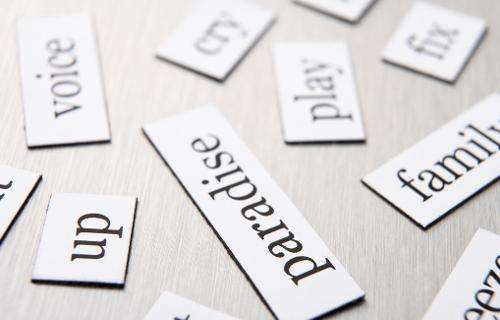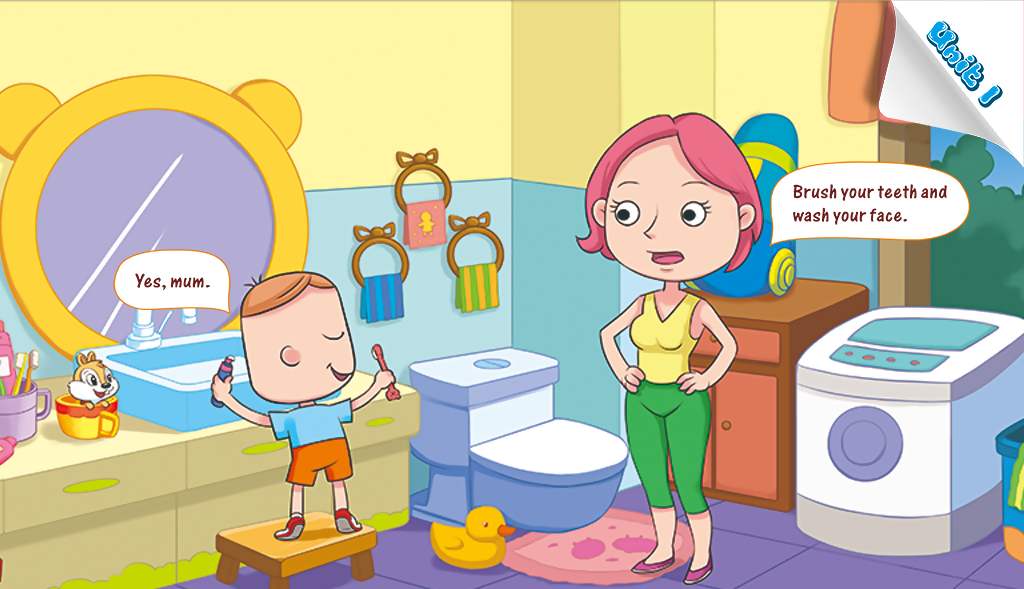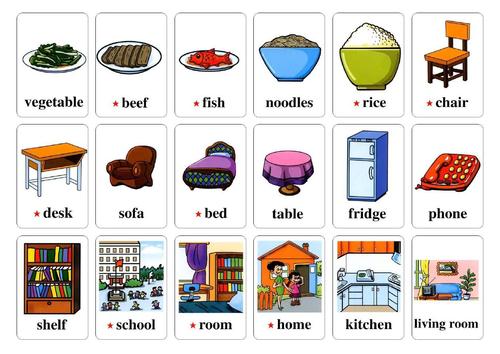5+2的练习,必须要坚持,如果做不到,后面的也没用。第一个周期至少一个月,有人告诉我一个月一点效果都没有的,应该是悲剧了,但是十天就有效果的,应该是幻觉。大部分同学告诉我的回馈都是-老师,文章我听了啊,题目我都记住了,听还有什么意思么我的回答是,因为你每次听的时候,脑子里面只想着做那么几道题。不用多想,就能明白,做对了这几道题不一定能够做对同一文章的另外一些题目,想当初托福听力就是出现原文,然后把题目换了,N多同学庆幸自己背了机经,觉得自己人品爆发了,出现了原文章,得意忘形之后,最后发现听到了都没考,没听到的全考了。同样,能做题不意味着能够听懂,能听懂也不一定意味着了解其间的深层含义,能了解深层含义也不一定意味着能听力就记住,听了就记住也不一定意味着能够复述出来,能够复述出来也不完全意味着能够用到自己的表达当中去。
想当初我在大学的时候,听力也算是不错的,一般老师上课放一次我就能够题目全做完,正确率也不错,但是大部分同学需要听第二次,老师只有接着放,那我干什么呢难道打开手机看那个传说中的小月月明显我在放第二次的时候给自己修改了目标和任务,当所有人还在纠结于那些题目正确率的时候,我已经开始注重每一句话的大意和分析文章结构,当所有的人开始听第三次,在老师的指引下完成文章大意理解的时候,我开始用笔记法训练速记,当老师带着大家放第四遍并且开始训练笔记的时候,我已经可以不用笔记,尝试脑记或者瞬时记忆准备复述文章了,当老师让大家看着笔记放第五次为最后一轮脑记的任务准备时,我已经在做影子跟读了。这里要说的重点是,永远给自己一个任务,每一轮的任务尽可能不同,注意,这里说的是每一轮,不是每一遍,因为一轮可以有很多遍,直到完成这个任务后进入下一轮。
具体来说,针对有题目的听力文章,一般分为三个基本阶段。
1、能做题
2、能听懂
3、能输出
所谓能做题,也就是不一定要听懂每一个单词,只捕捉和题目信息有关的词句,通过推理,做出题目来。比如:选项是15,10, 25,50
A: I would like to pay by check. Can I make it out for more than 15 dollars
B: Certainly sir, but there is a 10 dollar limit over the amount of purchase though.
同学们很容易听到两个数字,一个是15,一个是10,一般意义上讲,金钱往往会出现加减,但是不会出现乘除,所以加起来等于25,减下来等于5,答案里面只有25,所以选第三个。即便是选项变成了15, 10,25,5, 也可以通过听到15 dollars前面的more than看出,本身就比15大,自然答案是25。所以题目怎么出,都难不倒大家。
所谓能听懂,就是要听懂具体词句的意思,当然是不是每个字都要听懂,这要看这个词是否是高频词汇,一般意义上讲我们这里学习的英语(论坛)叫做general English。也就是通用类的英文,所以一般向正负离子对撞机之类的非主流高科技词汇,我们就可以掠过,但是诸如我们刚才原文里面的make it out,limit, amount of, purchase等就要做进一步的听力研究了。
第三轮的目的是能输出,一定要把听力的内容变成自己口语的表达,把阅读的内容变成自己的写作的表达,前面已经说过,谁是最好的老师,而听力就是别人的口语,阅读就是别人的写作,与其我们坐在桌前苦思冥想一个句型和表达,不如从现成的材料当中汲取灵感或者能量。比如有的人从听力中听到了you deserve it的表达,意思是你活该,学会了以后就一直坐在那里等机会,等到别人倒霉的时候,装作不经意的说出那么一句积攒了N年的话。当然后来发现,you deserve it不一定是你活该的意思,也可以因为it是正面的东西,变成当仁不让,也可以用在夸赞别人的语境当中。但是这样的机会仍然不多,所以,要能够创造语境和机会,结合前面quotes名言的方法,让这个词在自己的生活中使用率大大提升,当这个词能够结合句子脱口而出或者随笔而出的时候,它才是你的。
拿刚才那个题目举个例子,里面的More than是一个不错的结构,要把输入和输出结合,就不能只限制在数额上。而要进一步挖掘它的含义。More than可以加上形容词,在形容环境污染的时候,可以说the pollution is more than serious. 讲到爱意并的时候,可以说AIDS is more than medical. 迎接客人的时候可以说you are more than welcome,看到又帅又有才华的斑马王子,可以说he is more than handsome。再进一步挖掘,发现more than和less than的结合很有意思,比如莎士比亚那句著名的I love you, more than yesterday but less than tomorrow. 联想到我们原来提到过的暧昧的表达方式: they are more than friends but less than romance. 总之要有这样的意识。
遇到听力当中好的句子,也可以用原来所教授过的修改句型结构的方法,来进行听力和口语输入输出的良性循环。比如布什演讲当中的那段对圣经的引用-even if I walk through the valley of shadow of death, I fear no evil, for you are with me. 在听懂的基础上,用于感恩的口头或者书面表达也比较不错,当然,如果觉得不是所有事情都是the valley of shadow of death,也可以稍作修改,比如valley of shadow of challenge and despair等。
扩展:英语复合句的用法及解题技巧
在高考英语试题中,复合句占有较大的比例,复习时应该注意:
1.倡发散思维,忌单向思维,考各种从属句,常常是不同类型的连接词语正误连缀而至,如果不抓住这一点,不从多方面思考选择,就容易以偏概全, 误入歧途。
2.弄清主从复合句中的每一个从属连接词的意思、用法、主句与从句在时态上的呼应、语气、是否需要倒装、固定搭配及逻辑常识等。
3.熟记句型及特殊表达形式。
4.注意各分句之间的特点及区别。
5.注意有些连接词的省略情况及省略后某些语序发生的变化。
总之在做习题时,不能生搬硬套,一成不变,要全方位的思考,摸清出题者的意图,灵活机动,随着不同的语言环境而变化。
一、状语从句:
状语从句又可分为时间、地点、目的、原因、结果、行为方式、条件、让步及比较等几种形式。
1.Ill go with you as1 soon as I ____my work.
A.will finish B.shall2 finish C.finish D.finished3
选C.在时间、条件状语从句中,主句可能是祈使句、一般将来时或带情态动词,从句用一般现在时。如 果主句是过去将来时,从句可以用一般过去时。能够引导时间状语从句、条件状语从句的从属连接词,常见的 有:when,until (ti y,directly,unless4,as long as,suppose等。如:
(1)Unless he comes,we won6t be able7 to go.
(2)Suppose5 it goes on raining,what shall we do
(3)Lu Xun often said,As long as I am alive,I shall go on studying.
2.No sooner_____the news9 than they rushed10 out into the street. A.they heard B.they had11 heard C.did12 they hear D.had they heard 选D.no soonerthan,hardly when,scarcely before表示 就,主句一般用过去完成时(h ad+V-ed),从句用一般过去时,如果hardly,no sooner, scarcely放句首,主谓倒装。
3.Although13 he is considered14 a great writer,____(MET91) A.his works15 are not widely read B.but his works are not widelyread C.however16 his works are not widely read D.still his works arenot widely read 选A.这是一个让步状语从句,主句与从句之间有一个从属连词 although(though),不能再加but,howeve r,still等,但可以和yet连用。
4.No matter how hard he worked,____(84年) A.he could18 not do any better B.and he could not do any better C.so he could do any bettes D.but he could not do any better 选A.由no matter引导的让步状语从句,其主句也不能再用but,and,so 等并列连接词。
5.____he might,he failed,A.Try as B.As try C.Tried as D.As tried 选A.为了强调让步的意义,表示出非常强烈的对照,用as或though引导的让步状语从句,从句的语序要作部分调整,即把句子受强调的表语、状语或动词原形置于从句的句首。如果表语是单数可数名词,移置句首时,名词前不用冠词。如:
(1)Much as I like it,I will not buy it.(2)Child as she is,she knows a lot of English.
6.Did the two boys look so much alike____no one could tell thema part19
A.and B.that C.as D.so that
选B.目的状语从句的表达:主+谓+that(so that,in order20 that)+ 主+may(might,can,could,sho uldnt等)+谓。
7.____Mr Smith is well again,he can travel21. A.Now that B.But that C.And that D.Since22 that
选A.now that相当于since。表示原因状语从句的连接词常见的有 because,as,since,now that,seeing that,considering that等。
8.It was____a hundred people looked lost in it. A.so large a room that B.so large a room C.such24 large a room thatD.a such large room
选A.引导结果状语从句:
so+adj(adv)+that从句so+adj+a(an)+n+that从句such+a(an)+ adj+n+that从句 表示这样(一个)以至于。
9.The harder he worked,____he felt. A.happier B.the happier C.the happy D.the happiest 选B.the+比较级+主+谓,the+比较级+主+谓,意思是越 越。
二、定语从句
定语从句是在复合句中使其修饰的某一名词或代词代表一个(些)或一类特 定的人或东西。在做定语从句 的练习时,首先应该找出先行词,然后再确定选择关系代词或关系副词。能够引导定语从句的关系代词和关系副词有 who,whom25,whose,that,which,when,why,where。
1.She heard a terrible26 noise,____brought her heart27 into ber mouth.(M
A.it B.which C.this D.that
选B.在非限定性定语从句中,关系代词用which不能用that。
2.He paid28 the boy $ 10 for washing29 ten wiondows,most of____hadnt cleaned for at least30 a y ear.(MET90)
A.these B.those C.that D.which
选D.如果选A、B、C,整个句子不符合语法要求,因为有一个逗号, 不是并列句,因此只能是一 个非限定性定语从句,在非限定性定语从句中关系代词一般用which。
3.His parents wouldnt marry31 anyone____family was23 poor.(MET88)
A.of whom B.whom c.of whose D.whose
选D.因为whose作family的定语。
4.Finally33 the thief34 handed in everything____he had stolen35 to thepolice.(MET87)
A.after B.what C.whatever36 D.that
选D.因为A、B、C不能引导定语从句。先行词everything,关系代词 that在从句中作宾语。当先行词 是不定代词all,anything,nothing,everything,something等,关系代词只能由that引导。
5.All____is needed is a supply37 of oil38.(MET89)
A.the thing B.that C.what C.which
选B.All作先行词,关系代词由that引导。
6.In fact39 the Swede did not understand the three questions____were asked in French40.(85年 )
A.where B.who C.in which D.which
选D.question是先行词,在从句中作主语,所以应用which引导。
7.The man____talked to you just now is an engineer41.(80年) A.who B.where C.which D.what
选A.先行词是man。在从句中作主语,所以选who。
8.The wordwritehas the same pronunciation____the workright. (84年)
A.of B.as C.to D.from
选B.先行词中含有such,the same时,或先行词被such,the same修饰时,关系代词用as引导。
9.Watch the girl and her dog____are crossing the bridge42. A.which B.who C.they D.that
选D.当先行词含有人和物时,关系代词用that。
10.This dictionary,a few43 pages____are missing,is of no use.
A.among44 which B.of which C.which D.in which
选B.dictionary是先行词,which是关系代词,a few pages of which(diciotnary)。
11.You may take____book you like.
A.which B.only c.whichever45 D.what
选C.复合关系代词本身兼有先行词。whichever=anything that,whatever=anything that,whoever46=any one who,whomever=anyone32 whom,whosever=anyone whose。
12.This is the best dictionary____Ive ever17 bought.
A.with which B.that C.which D.when
选B.先行词是dictionary,因为先行词前有最高级、序数词、only,very,any等修饰时,关系代词用tha t。
13.I still remember the day____I first came47 to Beijing.
A.which B.that C.when D.where
选C.先行词the day,在定语从句中作状语,所以选when。当先行词是时间名词或地点名词时,关系词选 用when或where,that或which,主要取决于在定语从句中所作成份,如果作宾语,用that或which,作状语用wh en或where。 如:
(1)I still remember the days that/which we spent in the countryside48.
先行词是the days,spent是及物动词,that/which作spent的宾语。
(2)This is the place where I lived three years ago.
先行词是place,lived是不及物动词,where在从句中作状语。
(3)This is the place that/which we visited three years ago.
先行词是place,visited是及物动词,that/which在从句中作宾语。
14.____,Charles Dickens was an English writetr.
A.Its knownn to all B.Its known49 that C.We all know D.As isknown to all
选D.as引出非限定性定语从句,表示正如那样。类似的还有:asyou know,as you see,as can be known,as has been pointed50 out,as is known to all等。
15.I dont like the way____you laughed
at her.
A.which B.in that C.where D.that
选D.先行词是the way,表示方式,可用that(可省)或in which来引导一个定语从句。如果先行词是时 间或原因,也可用that(可省)或when或 why来引导定语从句。如:
(1)This was the reason51 that/why he was late yesterday.
(2)This is the last time that I shall give you a lesson.
三、名词性从句:
在句子中充当主语、宾语、表语与同位语的句子分别叫做主语从句、宾语从句、表语从句和同位语从句, 这些统称为名词性从句。
1.Can you make sure____the gold ring(MET90)
A.where Alice had put B.where had Alice put C.where Alice has putD.where has Alice put
选C.在宾语从句中,须用陈述句自然语序(即疑问词+主语+谓语)。主句是现在时,从句也亦用相应的一类时态,现在完成时。
2.These photographs52 will show you____(MET89)
A.what does out village look like B.what our village looks likeC.how does our village look like D.how our village looks like
选B.show后面接一个宾语从句,A,C语序不合,D答案中的how是副词,不能作like的宾语。
3.They want to know____do to help us.(MET88)
A.what can they B.what they can C.how they can D.how can they
选B.know后面接一个宾语从句,A,D语序不合,C答案中的how是副词,不能作do的宾语。
4.They have no idea at all____.(MET87)
A.where he has gone B.where did he go C.which place has he goneD.where has he gone
选A.根据宾语从句语序。
5.Can you tell me____(85年)
A.Who is that gentleman53 B.that gentleman is who C.who that gentleman is D.whom is that ge ntleman
选C.在宾语从句中that gentleman作主语,who作表语。
6.The old gentleman never fails54 to help____is in need of help. A.whom B.who Cwhoever D.whomever
选C.whoever=anyone who。如:
(1)You may do whatever(anything that) you like.
(2)Return55 the book to whosever(anyone whose)name is on it.
(3)You had better see the men for yourself56 and choose whichever(any one of them that) you like.
7.____comes back first is supposed57 to win the prize58.
A.Those who B.Anyone C.Whoever D.The one who
选C.Whoever=anyone who。A主谓不一致,B句子结构不正确,D无让步意味。
8.The news____we had won in the match excited59 us all.
A.that B.where C.which D.X8
选A.We had won in the match就是the news 的具体内容,同位语从句中的连词that,尽管不作任何成 份,但不能省去。



